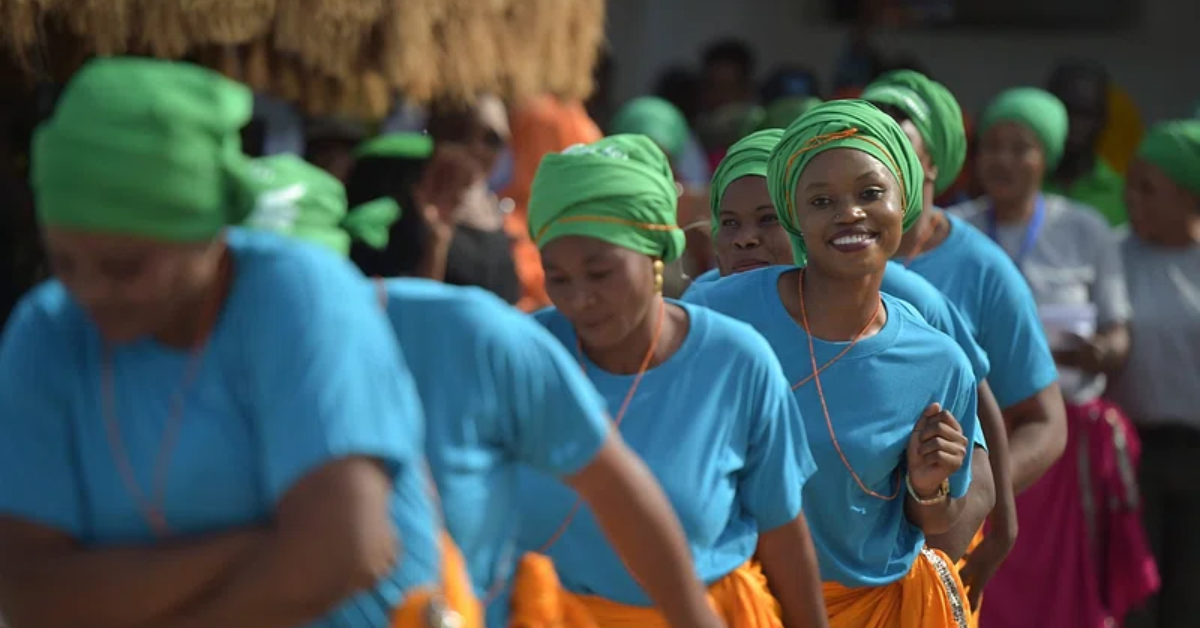In refugee camps like Nyarugusu, the conversation around skills is often framed in terms of survival. Learning to sew means income. Learning English means opportunity. Agricultural training means food security.
All of these are true. But at Equipping Hope International, we believe there’s more to it.
We believe work has spiritual meaning.
Whether someone is resettled, waiting, or indefinitely displaced, the opportunity to learn and contribute is more than practical. It reflects the image of the God who made us.
Work Was Part of the Garden
Before sin entered the world, God gave Adam a job:
“The Lord God took the man and put him in the Garden of Eden to work it and take care of it.” — Genesis 2:15
Work was not a punishment. It was part of purpose.
That means when we teach someone how to sew, speak a new language, or cultivate a garden, we’re not just preparing them for a task. We’re affirming that they are still called, even in displacement, to create, provide, and serve.
For refugees who have lost nearly everything, this matters.
Displacement Doesn’t Cancel Calling
When someone is forced to flee their country, they may lose access to their home, profession, and resources. But they don’t lose their gifts. They don’t lose their potential.
The Apostle Paul wrote letters from prison. Ruth gleaned grain in a foreign land. Joseph rose to power far from home. Again and again, Scripture reminds us that God works through people in transition and often uses their work to bless others.
We believe the same is true in refugee camps today.
Learning Builds More Than Skill
At Equipping Hope, our vocational and educational programs in refugee camps are designed with this theology in mind.
When a student learns to sew, they’re not just making clothes. They’re exercising stewardship. They’re building habits of excellence. They’re preparing to serve others.
When someone learns English, they’re not just gaining a new language. They’re opening doors to leadership, participation, and connection. All of which reflect our identity as members of one body (Romans 12:4–5).
This is why we teach. Not just to prepare people for employment, but to remind them that their labor, in every season, matters to God.
“Whatever you do, work at it with all your heart, as working for the Lord…” — Colossians 3:23
Work Builds Community
In a camp like Nyarugusu, where boredom, despair, and dependency can take root, meaningful work does more than fill the day. It strengthens community.
Tailoring apprentices teach new students. English graduates return to mentor the next class. Farming cohorts will share harvests and tools. When people are equipped with skills, they often become the very leaders and helpers their neighbors need.
This mirrors the early church, where “each part does its work” (Ephesians 4:16). Everyone contributes. Everyone is needed.
A Witness to the World
Finally, we believe that work done well is a testimony.
It shows the watching world that displacement is not the end of someone’s story. That faithfulness can flourish even in places of waiting. That God is present not just in rescue, but in the rhythm of sewing, speaking, planting, and learning.
When a refugee gains a skill and uses it to serve others, they bear witness to the Creator who works and rests and calls us to do the same.
Why We’ll Keep Teaching
At Equipping Hope, we don’t teach just because the need is great — though it is. We teach because we believe people were made to grow.
We train not just because we want to fight poverty, but because we believe God uses work to restore purpose.
And we keep showing up, class after class, year after year, because we believe in a Gospel that speaks not only to eternity, but to everyday life.
Even — and especially — in a refugee camp.
With hope and conviction,
The Equipping Hope Team
